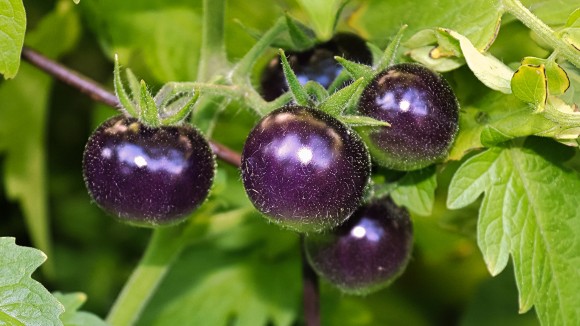 María Ayelén Pagani is a Member of the National Scientific Research Council of Argentina, and has more than 10-year experience of teaching Inorganic Chemistry and Food Science at the National University of Rosario. At CEFOBI (CONICET-UNR), her research focuses on understanding the genetic, biochemical and molecular mechanisms of accumulation and regulation of metals in plants, with the goal to increase the amount of nutrients in the edible parts. Dr Pagani has been an Editorial Board Member for Scientific Reports since 2022.
María Ayelén Pagani is a Member of the National Scientific Research Council of Argentina, and has more than 10-year experience of teaching Inorganic Chemistry and Food Science at the National University of Rosario. At CEFOBI (CONICET-UNR), her research focuses on understanding the genetic, biochemical and molecular mechanisms of accumulation and regulation of metals in plants, with the goal to increase the amount of nutrients in the edible parts. Dr Pagani has been an Editorial Board Member for Scientific Reports since 2022.
 Fernando Henrique da Silva Reboredo is an Associate Professor with Habilitation at NOVA School of Science and Technology. His major research interest is related to biofortification studies and evaluation of the elemental composition of natural supplements with terrestrial and marine origin. Prof Reboredo has been an Editorial Board Member for Scientific Reports since 2022.
Fernando Henrique da Silva Reboredo is an Associate Professor with Habilitation at NOVA School of Science and Technology. His major research interest is related to biofortification studies and evaluation of the elemental composition of natural supplements with terrestrial and marine origin. Prof Reboredo has been an Editorial Board Member for Scientific Reports since 2022.
 Michela Schiavon is Associate Professor in Agriculture Chemistry at the Department of Agricultural, Forest and Food Sciences of the University of Torino. Her research focuses on technologies aimed at biofortifying crops with selenium, plant nutrition and physiology under abiotic stress, interactions between metal/loids and nutrients during plant uptake, and biostimulant development. Dr Schiavon has been an Editorial Board Member for Scientific Reports since 2022.
Michela Schiavon is Associate Professor in Agriculture Chemistry at the Department of Agricultural, Forest and Food Sciences of the University of Torino. Her research focuses on technologies aimed at biofortifying crops with selenium, plant nutrition and physiology under abiotic stress, interactions between metal/loids and nutrients during plant uptake, and biostimulant development. Dr Schiavon has been an Editorial Board Member for Scientific Reports since 2022.
 Mallikarjuna Swamy is a Lead Rice Breeder at International Rice Research, LosBanos, Philippines. He has been playing a pivotal role in developing healthier rice varieties. His team has achieved major milestones by developing Golden rice and Micronutrient rich rice varieties. Dr Swamy has been an Editorial Board Member for Scientific Reports since 2020.
Mallikarjuna Swamy is a Lead Rice Breeder at International Rice Research, LosBanos, Philippines. He has been playing a pivotal role in developing healthier rice varieties. His team has achieved major milestones by developing Golden rice and Micronutrient rich rice varieties. Dr Swamy has been an Editorial Board Member for Scientific Reports since 2020.

